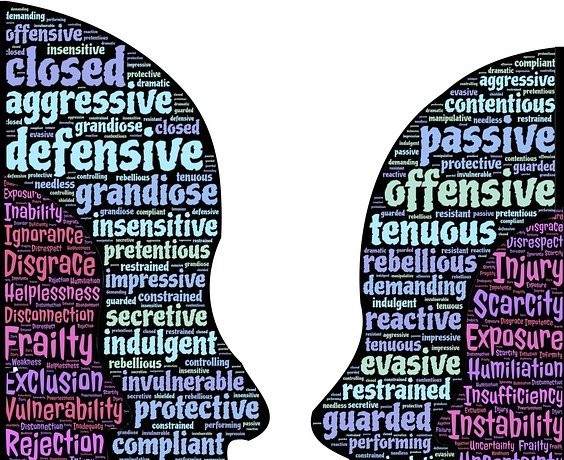Some habits can be bad for our health, like overindulging in a certain food, excessive drinking and smoking. But you may not know about other habits that are detrimental to your health.
Most of the time, habits are what separates a healthy from an unhealthy person, it’s what makes or breaks a person.
Some bad habits might already be part of your regular routine and could be unrecognizable. Its negative implications might go unnoticed for a while but long-term negative effects will manifest over time.
Below are some of these habits paired with some tips on how to convert them into positive habits.
1.Putting off Exercising
Not everyone is inclined toward the muscle-straining, sweat-inducing, and lung-burning sensation one gets from regular exercise. But, like wine, exercise is an acquired taste and one that anyone can enjoy.
Neglecting to exercise can eventually cause illnesses and chronic diseases. You’re putting yourself at greater risk for diseases like diabetes, obesity, hypertension, and other health issues.
To fix this, you have to be open-minded and try as many exercise activities as possible until you find the ones you enjoy.
You can try jumping rope, jogging, yoga, Pilates, weight training, swimming, or even just taking a walk every day.
Start small. You don’t have to push yourself to run an hour on the treadmill. You can do your chosen routine for 5 minutes every day, then gradually increase it as you progress.
Remember that exercise is a lifestyle and it’s not a sprint, but a marathon. It’s not about the power you put into it but the consistency that determines your success.
2. Waking Up to Social Media
Most people have developed the habit of instantly grabbing their phones the minute they wake up. First, it’s just to check messages, then it escalates to checking social media and then scrolling to hundreds of posts on TikTok or Instagram.
Our smartphones aren’t really the cause of the addiction, but the social experience that it provides people. Humans have evolved to be social creatures and social media caters to that aspect.
Social media also stimulates the release of dopamine. It’s a hormone released by our brain that makes us excited or feel happy. This hormone is stimulated whenever we get a notification on Instagram, Facebook, or Twitter as it’s likened to the feeling of being rewarded or pleasure.
You have to control your relationship with pleasure. The most successful individuals are those who can put a buffer between themselves and pleasure.
Instead of scrolling through posts on social media, you can start off your day with planning. Exercising or taking a cold shower. You can even start writing a morning journal where you can jot down what you wish to accomplish that day or what you expect the day to look like. These daily habits can motivate you to work harder and will greatly improve your well-being.
3. Putting Off Your Doctor’s Appointments
We have all been there, delaying the trip to the doctor or dentist. This is a habit that should be eliminated. It’s true that we can delay the trip, but we’ll have to visit eventually. The question is whether you prefer to visit early when the symptoms are still manageable, or go there when it’s turned for the worse?
The answer is clear. It’s better to visit when the potential issue could still be easily addressed by a cheap medicine, rather than visiting when it’s so severe that surgery would be necessary.
4. Sleeping Late
Getting quality sleep is very important for our mental health and physical well-being. However, some of us have developed the habit of forsaking sleep to do other activities at night, while some just choose to sleep later and sleep in a little later the next morning.
But, 7 to 8 hours of sleep doesn’t guarantee a restful sleep. The quality of sleep is determined by when you sleep and how you sleep.
So when is the best time to go to sleep?
The best time to go to bed depends on what time you have to wake up in the morning (or at night for those who are on the night shift.) Count backwards by 7 hours from the time you have to wake up and that will be your ideal sleeping time.
For infants, children ages 12 below, and teens, the amount of sleep they need will vary from 9-17 hours, but they should ideally be getting to bed before 9 PM.
5. Using Products Made from Chemicals or Synthetic Ingredients
While most people are conscious about the quality of food they eat, many are not very meticulous about the products they put on the skin.
Synthetic pertains to anything that doesn’t come from nature. Examples are petroleum jelly, parabens, sodium lauryl sulfate, synthetic colors, and synthetic fragrances. All these are made from a laboratory and products that contain these ingredients may have been tested on animals.
With online shopping, we are exposed to a variety of products that only needs a tap of a finger to get. Most of the time, we rely on word-of-mouth of a brand’s popularity without being too privy about what ingredients go into the products.
We habitually use hair care products, skincare products, and make-up that contain chemicals and synthetic ingredients, which can be detrimental to our health. These chemicals have the capability to seep through our skin and enter our bloodstream.
Long-term exposure to these chemical substances can cause complications in our bodies.
One way you can stay healthy and take care of the environment at the same time is by using natural and organic products. There is an abundance of natural products in the market like organic soap, natural hair conditionerand skincare products that use different natural ingredients to give your skin the vitamins and minerals it needs without harming the environment.
Always do your own research before buying any product. Make sure that all the ingredients in the label are safe to use and that they won’t cause you to have any allergic reactions.





